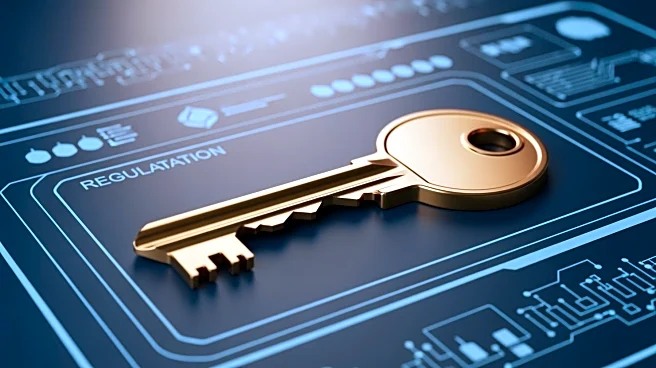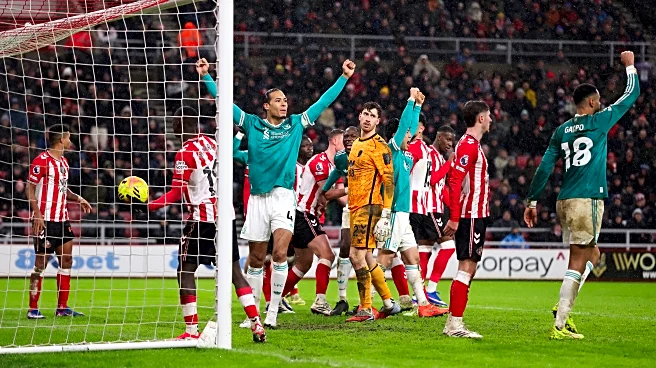What's Happening?
President Donald Trump has issued a pardon for Changpeng Zhao, the founder of the cryptocurrency exchange Binance, who was previously convicted of violating federal anti-money-laundering laws. Zhao had
pleaded guilty in November 2023 and agreed to a $4.3 billion settlement with the Department of Justice, stepping down as CEO of Binance as part of the plea agreement. The White House announced the pardon, emphasizing Trump's stance against the Biden administration's regulatory approach to cryptocurrency. Zhao expressed gratitude for the pardon, highlighting his commitment to advancing the cryptocurrency industry in the U.S.
Why It's Important?
The pardon of Changpeng Zhao by President Trump is significant as it underscores a shift in the U.S. government's approach to cryptocurrency regulation. Under the Biden administration, there was a focus on stringent regulation and prosecution of cryptocurrency-related offenses, as evidenced by the substantial fine imposed on Binance. Trump's pardon could signal a more lenient regulatory environment, potentially encouraging growth and innovation within the cryptocurrency sector. This move may benefit industry stakeholders who favor deregulation, but it also raises concerns about the potential for reduced oversight and increased risks of financial crimes.
What's Next?
Following the pardon, there may be implications for Binance's operations in the United States, including the possibility of avoiding the $4.3 billion fine. The pardon could also influence future regulatory policies and enforcement actions related to cryptocurrency. Stakeholders in the industry, including other cryptocurrency exchanges and investors, will likely monitor the situation closely to assess the impact on market dynamics and regulatory expectations. Additionally, the pardon may prompt discussions among policymakers and legal experts about the balance between innovation and regulation in the rapidly evolving cryptocurrency landscape.
Beyond the Headlines
The pardon of Changpeng Zhao highlights broader ethical and legal questions regarding the use of presidential pardons, particularly in cases involving high-profile financial crimes. The decision may contribute to ongoing debates about fairness and transparency in the pardon process, as well as the influence of lobbying efforts. Furthermore, the move could affect international perceptions of the U.S. as a leader in financial regulation and its commitment to combating money laundering and other financial crimes.










